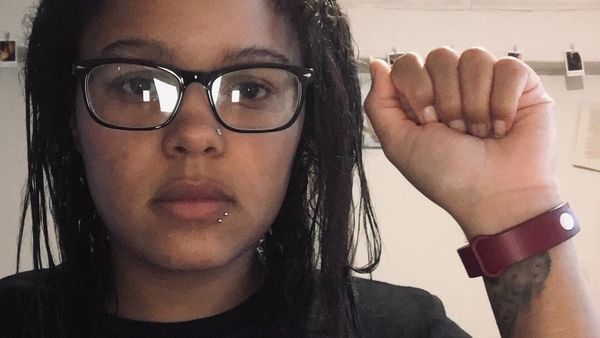Social activism is no effortless feat.
We're always told, "Stand up for what you believe in! If you see someone being treated wrongly, don't just watch or be a bystander: do something about it! Don't ignore what you see: speak out against injustice!" But that's easier said than done.
Coming from an incredibly diverse high school situated smack in the middle of an incredibly diverse town, I never found myself having to face issues such as racism, prejudice, sexism, or religious persecution. The people I was surrounded by were cool with me just the way I was, and I was cool with them just the way they were -- and that was that. Color, ethnicity, gender, sexuality: none of it mattered. In my high school, there were Indian people, Ukrainian people, Egyptian people, Korean people, African American people. People with five piercings in each ear, and people with tattoos. People with dyed hair, gauges, people who wore the brightest pairs of salmon-colored shorts or the most tattered jeans you've ever seen. We were all aware of our difference, yet that didn't drive us apart; rather, it brought us together. We celebrated both our individual and collective diversity, instead of trying to mask it.
Yes, I was sheltered and, yes, I thought people everywhere were going to be just as enthusiastic about difference as my high school was. But once I came to college, in a new state and a totally new environment, I quickly learned that this was not the case. Racism, prejudice, sexism, religious persecution; these things that I thought America had left in the past still existed in the present. For the first time, I found myself face-to-face with individuals who didn't celebrate diversity of culture, belief, and skin tone the way I had grown up doing. That's not to say that all of the people I encountered abstained from embracing difference, because I have met many who do. Yet, I was shocked that even a handful of my peers avoided it, and then realized that I had two options: I could either ignore the injustices I saw, or I could do something to change them.
But like I said, it isn't easy. It's damn hard standing up or speaking out for a cause. Hell, it's uncomfortable. You feel vulnerable, exposed. People stare at you. People laugh at you. People start treating you differently.
The real question, here, is why it so hard for us to stand up for what we believe in, and what makes us hesitate to act when we see something that we know is wrong. Is it because we care about how others will look at us? Is it because we care about what they will think of us? But the fact is, those things shouldn't and don't matter. And when it comes down to it, what's truly important is that we do whatever we can to fight injustice. As Dr. Martin Luther King Jr. once said, "Injustice somewhere is injustice everywhere," and that will never change unless we do something about it.
The more I put myself into these uncomfortable situations, the more I realized how incredibly important it is to stand up for other people, as well as to stand up for yourself and what you believe in. It takes bravery, courage, and guts to be the one voice against many. But your one voice has the power to initiate change, and to make a difference, no matter how small it may be.
The next time you see injustice, stand up, despite how difficult it may be or how uncomfortable it makes you feel. Because sure, you may be standing alone. And sure, you may keep on standing alone.
But, as Irene Dunne once said, "If you don't stand for something, you'll fall for anything."





















